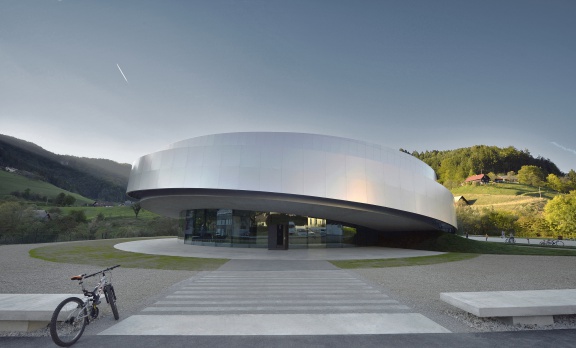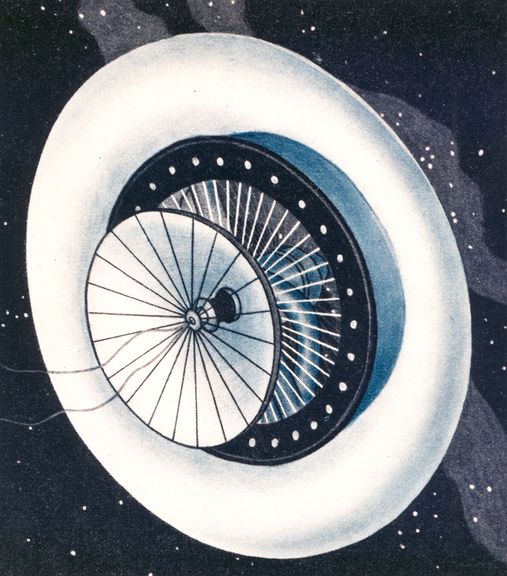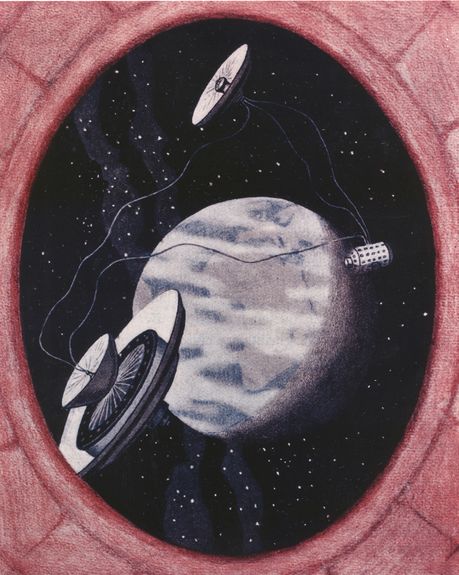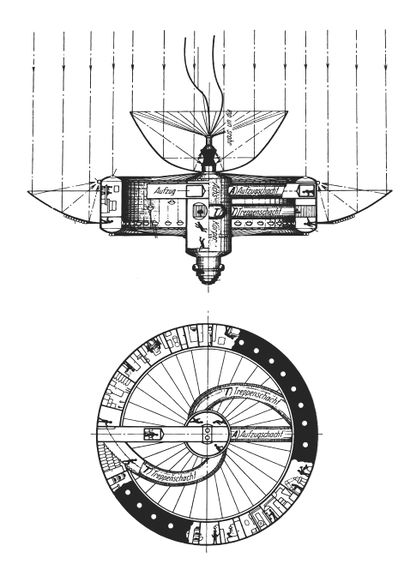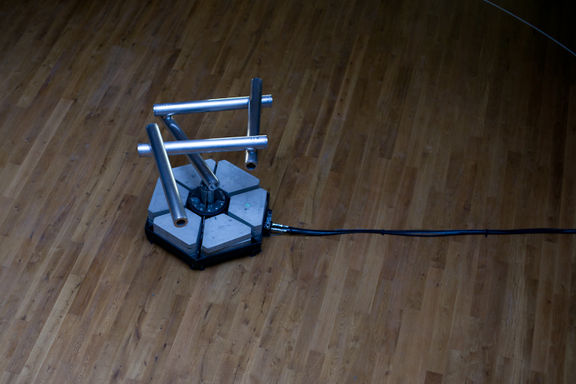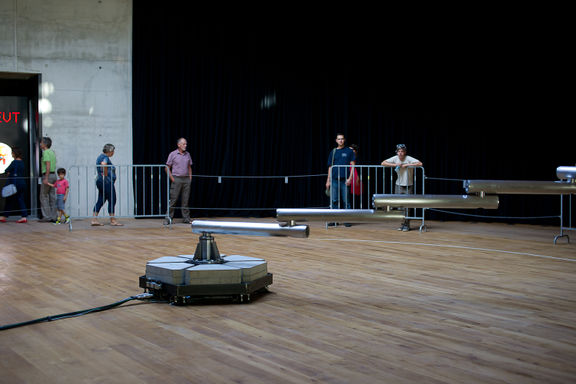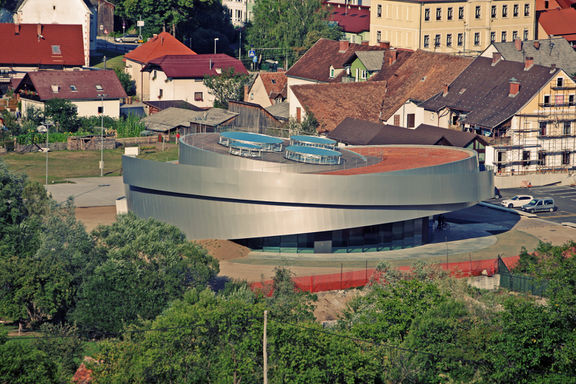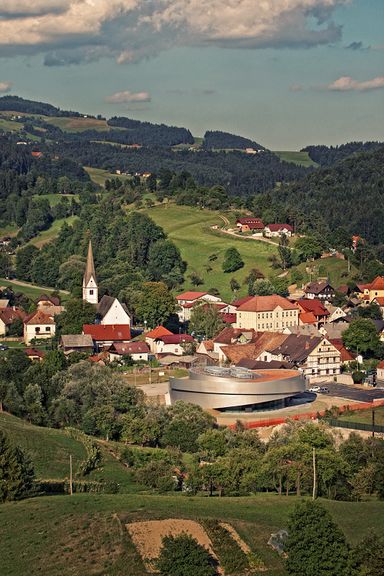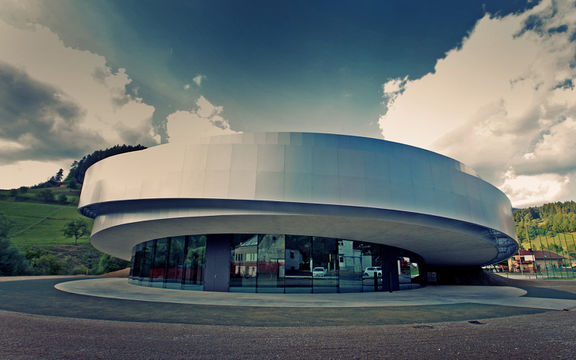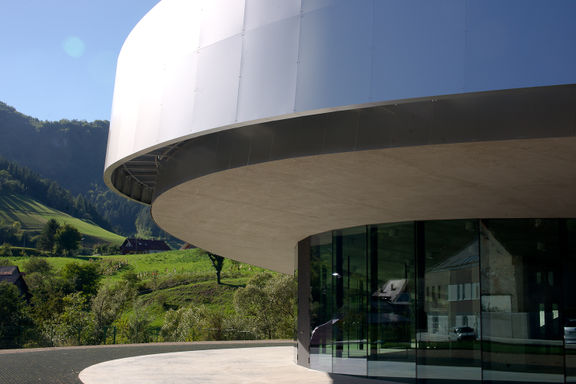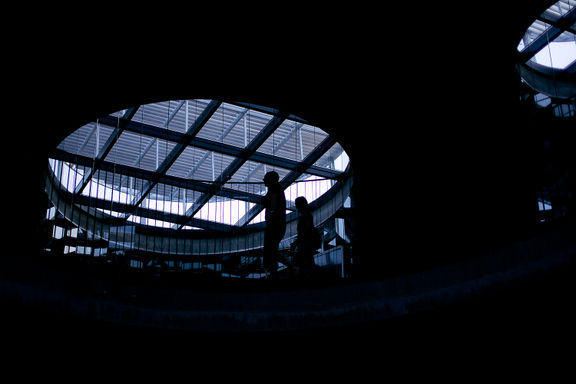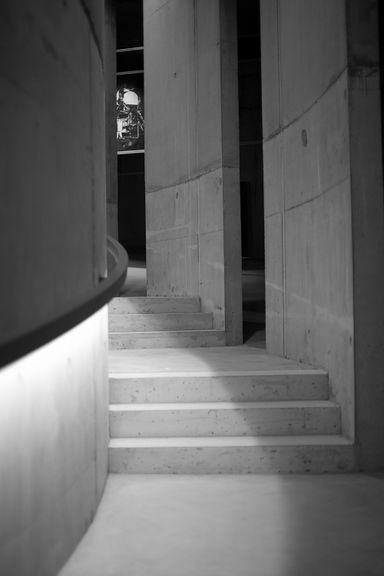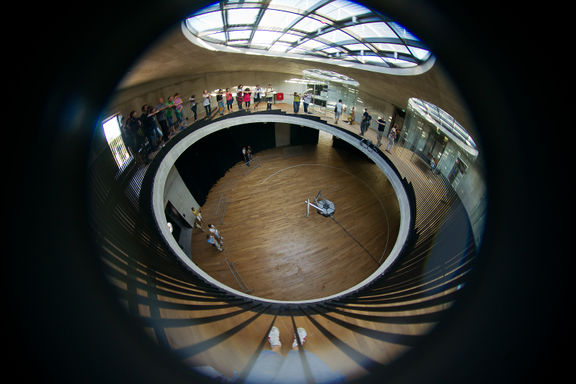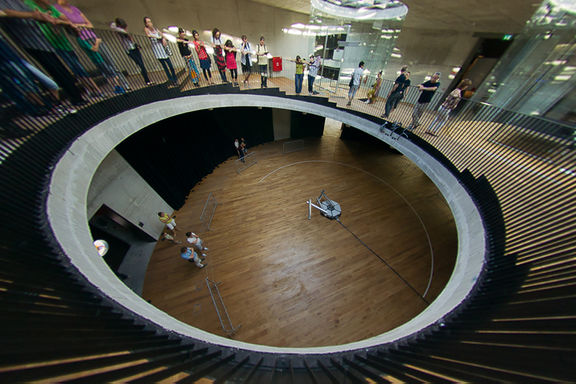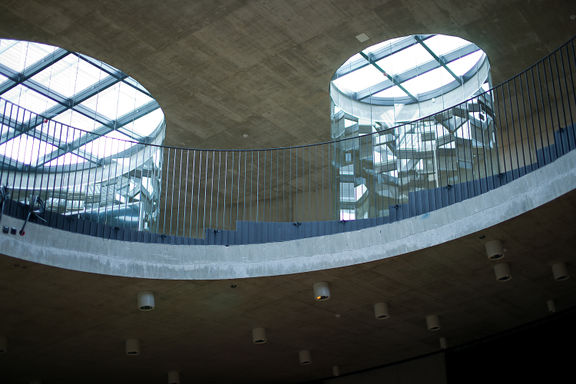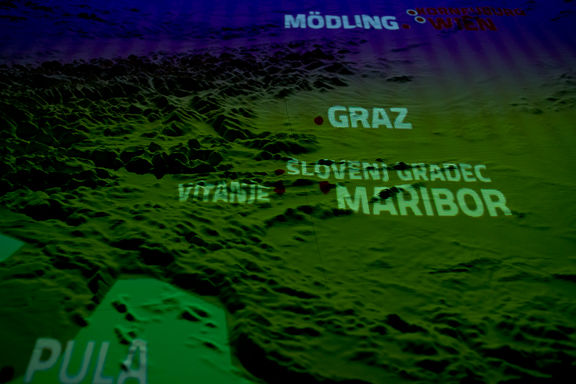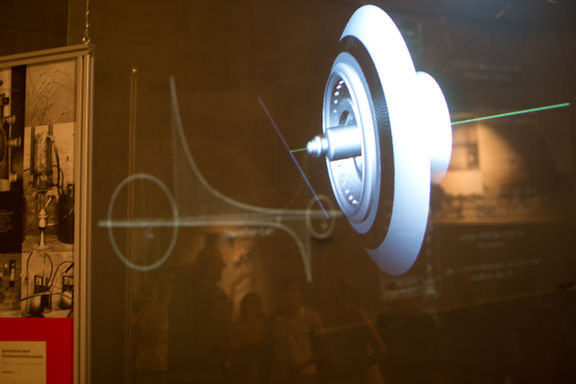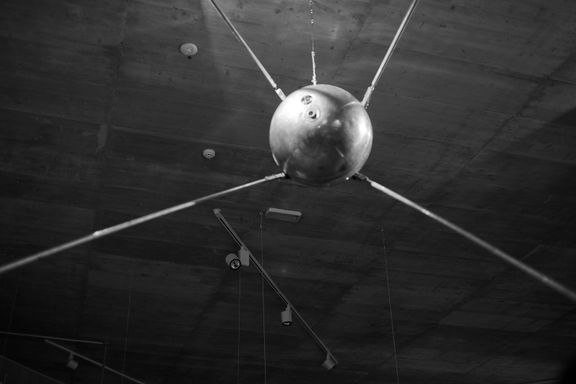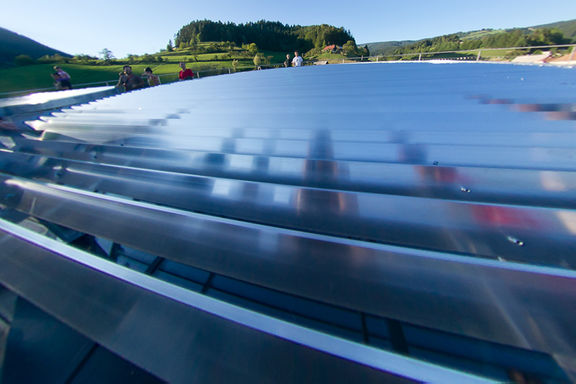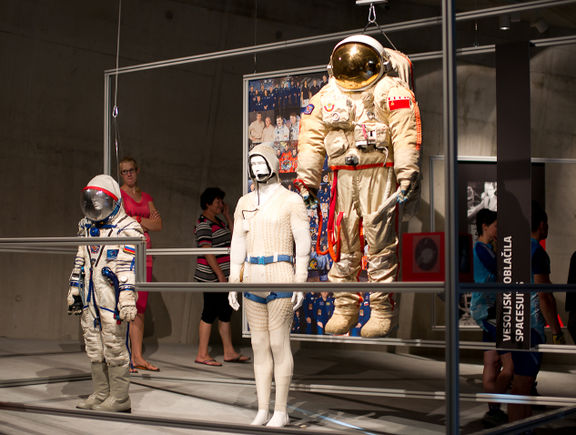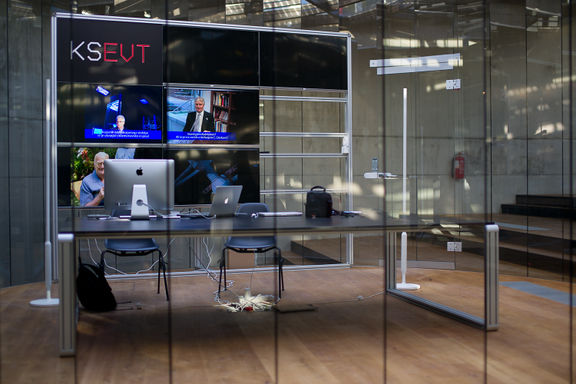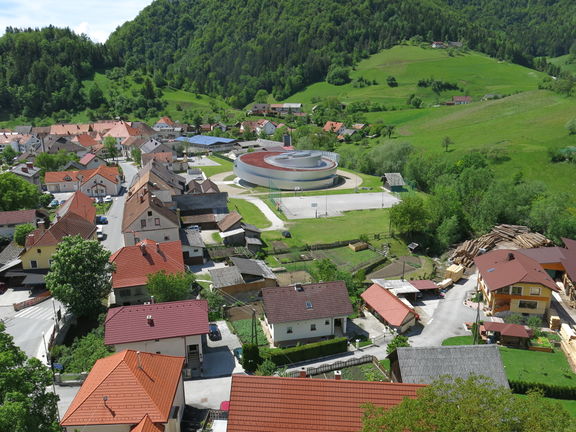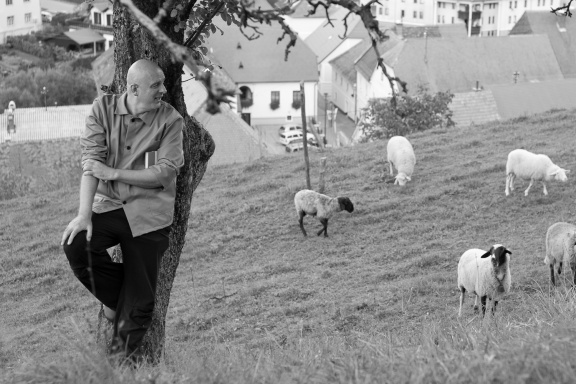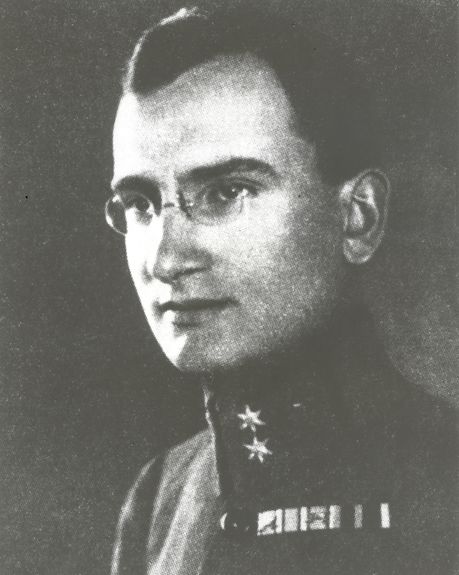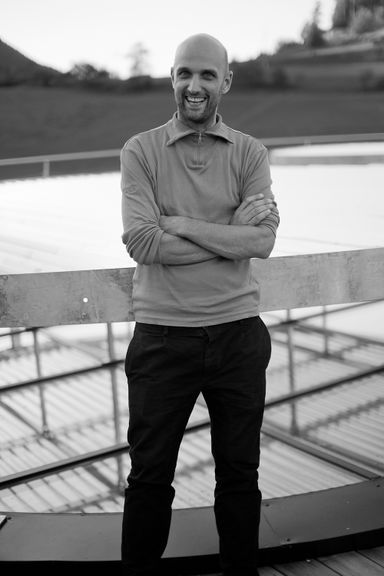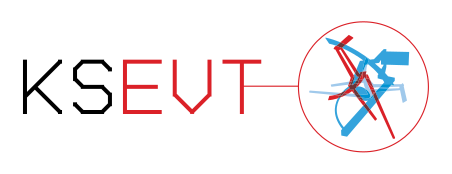Difference between revisions of "Cultural Centre of European Space Technologies (KSEVT)"
| Line 61: | Line 61: | ||
{{Teaser| | {{Teaser| | ||
| − | {{image| | + | {{image|Cultural Centre of European Space Technologies KSEVT 2012 interior 04.jpg}} |
| − | The [[Cultural Centre of European Space Technologies (KSEVT)]] opened in Vitanje in September 2012. The building design is the work of four architectural bureaus which established the Architectural Union for Vitanje (AZZV): [[Bevk Perović Arhitekti]], [[Dekleva Gregorič Arhitekti]], [[Ofis Arhitekti]], and [[SADAR + VUGA Architects]] | + | The [[Cultural Centre of European Space Technologies (KSEVT)]] opened in Vitanje in September 2012. The building design is the work of four architectural bureaus which established the Architectural Union for Vitanje (AZZV): [[Bevk Perović Arhitekti]], [[Dekleva Gregorič Arhitekti]], [[Ofis Arhitekti]], and [[SADAR + VUGA Architects]]. |
Described as "a living room of Vitanje inhabitants and a space for the synthesis of art and science focused on the post-gravity art" by its inceptors, KSEVT promises an interaction between the local, the regional, and the planetary. Next to permanent exhibition ''Herman Potočnik Noordung: 100 Monumental Influences'' since October 2013 an exhibition ''VOYAGER/DR. MAVRETIČ'' presents the work of Dr Anton Mavretič and the space probe Voyager. | Described as "a living room of Vitanje inhabitants and a space for the synthesis of art and science focused on the post-gravity art" by its inceptors, KSEVT promises an interaction between the local, the regional, and the planetary. Next to permanent exhibition ''Herman Potočnik Noordung: 100 Monumental Influences'' since October 2013 an exhibition ''VOYAGER/DR. MAVRETIČ'' presents the work of Dr Anton Mavretič and the space probe Voyager. | ||
Revision as of 23:06, 19 May 2014
-
to
28 Sep 2018
10 Oct 2018
The exhibition of projects developed for the Cultural Centre of European Space Technologies (KSEVT) by the AA nanotourism Visiting School in cooperation with the Biennial of Design (BIO), presented by Jakob Travnik, supported by the Slovenian Culture and Information Centre, Vienna (SKICA) (Embassy of the Republic of Slovenia Vienna),
at the Vienna Design Week
-
to
19 Sep 2018
23 Sep 2018
The exhibition of four projects developed for the Cultural Centre of European Space Technologies (KSEVT) in the period 2014 - 2016 by AA nanotourism Visiting School in cooperation with the Biennial of Design (BIO) and the projects' presentation by Jakob Travnik in the Biodesign Here and Now program, supported by the Embassy of the Republic of Slovenia London,
at the London Design Festival
-
to
6 Sep 2018
10 Sep 2018
The participatory intermedia installation KOSMICA Parliament by Miha Turšič, co-produced by Cultural Centre of European Space Technologies (KSEVT), Kapelica Gallery, and Delak Institute; Infinite In-Between by Mojca Založnik, produced by Kapelica Gallery; Singing Sand by Tadej Droljc; Maja Smrekar contributing to the Bog Concert Night; and aqua_forensic by Robertina Šebjanič and Gjino Šutić, featuring Aquatocene / The Subaquatic Quest for Serenity by Robertina Šebjanič, also a speaker at a panel and artist talk,
at the Ars Electronica Festival Linz
-
to
15 Jul 2015
5 Aug 2015
The audiovisual installation Voyager/non-human agent as well as an informance (information performance) and the presentation Cosmosapiens and the TerRatope by Špela Petrič and Miha Turšič (Cultural Centre of European Space Technologies (KSEVT)) in the framework of the exhibition New Materialisms
-
to
13 Dec 2014
8 Mar 2015
The First Space Architect: Herman Potočnik Noordung, an exhibition produced by the Cultural Centre of European Space Technologies (KSEVT),
-
to
16 Jun 2014
30 Jun 2014
Fourteen, a dance performance by Rosana Hribar and Gregor Luštek (Dance Theatre Ljubljana), Sad Sam Lucky, a dance performance by Matija Ferlin (Emanat Institute), a concert by Laibach, Postgravity Art: Cosmistic Architectre, a theatre informance by Dragan Živadinov, Dunja Zupančič, Miha Turšič, Dario Seraval, and Špela Petrič (Cultural Centre of European Space Technologies (KSEVT)), and Postgravity Art: Infomatrix, a visual informance by Dragan Živadinov, Dunja Zupančič, and Miha Turšičat (Cultural Centre of European Space Technologies (KSEVT)), at the IKS International Festival of Contemporary Theatre
-
to
6 Jun 2014
23 Nov 2014
The project The Problem of Space Travel - Supre: Architecture by the Cultural Centre of European Space Technologies (KSEVT) as the Slovene representative at the 14th International Architecture Exhibition - la Biennale di Venezia, supported by the Ministry of Culture,
-
9 Dec 2013
Dragan Živadinov, Miha Turšić, and Marko Peljhan from the Cultural Centre of European Space Technologies (KSEVT) at the Think Space Symposium
-
to
8 Oct 2013
11 Oct 2013
Robertina Šebjanič and Jerneja Rebernak (Cultural Centre of European Space Technologies (KSEVT)) at the Media Art Histories 2013: Renew, supported by the Embassy of the Republic of Slovenia Berlin
-
to
3 Aug 2013
13 Oct 2013
Free Enterprise: The Art of Citizen Space Exploration, a joint exhibition co-curated by Marko Peljhan, featuring also Slovene artists and organisations Cultural Centre of European Space Technologies (KSEVT), Trieste Constructivist Cabinet, Nejc Trošt, Noordung Cosmokinetic Cabinet, Projekt Atol Institute
-
to
29 Jun 2013
2 Jul 2013
The gallery performance, exhibition and video installation Via MSU Zagreb - No One Should Have Seen This produced by Via Negativa, the solo performance Drop Dead by Katarina Stegnar, and a trip to the Cultural Centre of European Space Technologies (KSEVT) accompanied by Dragan Živadinov
at the Eurokaz Festival
-
to
19 Jan 2013
18 May 2013
USA Riverside (CA) California Museum of Photography,Culver Center of the Arts & Sweeney Art Gallery
Free Enterprise: The Art of Citizen Space Exploration, a joint exhibition also featuring Slovene artists and organisations: Cultural Centre of European Space Technologies (KSEVT), Trieste Constructivist Cabinet, Nejc Trošt, Noordung Cosmokinetic Cabinet, Projekt Atol Institute, and curated by Marko Peljhan
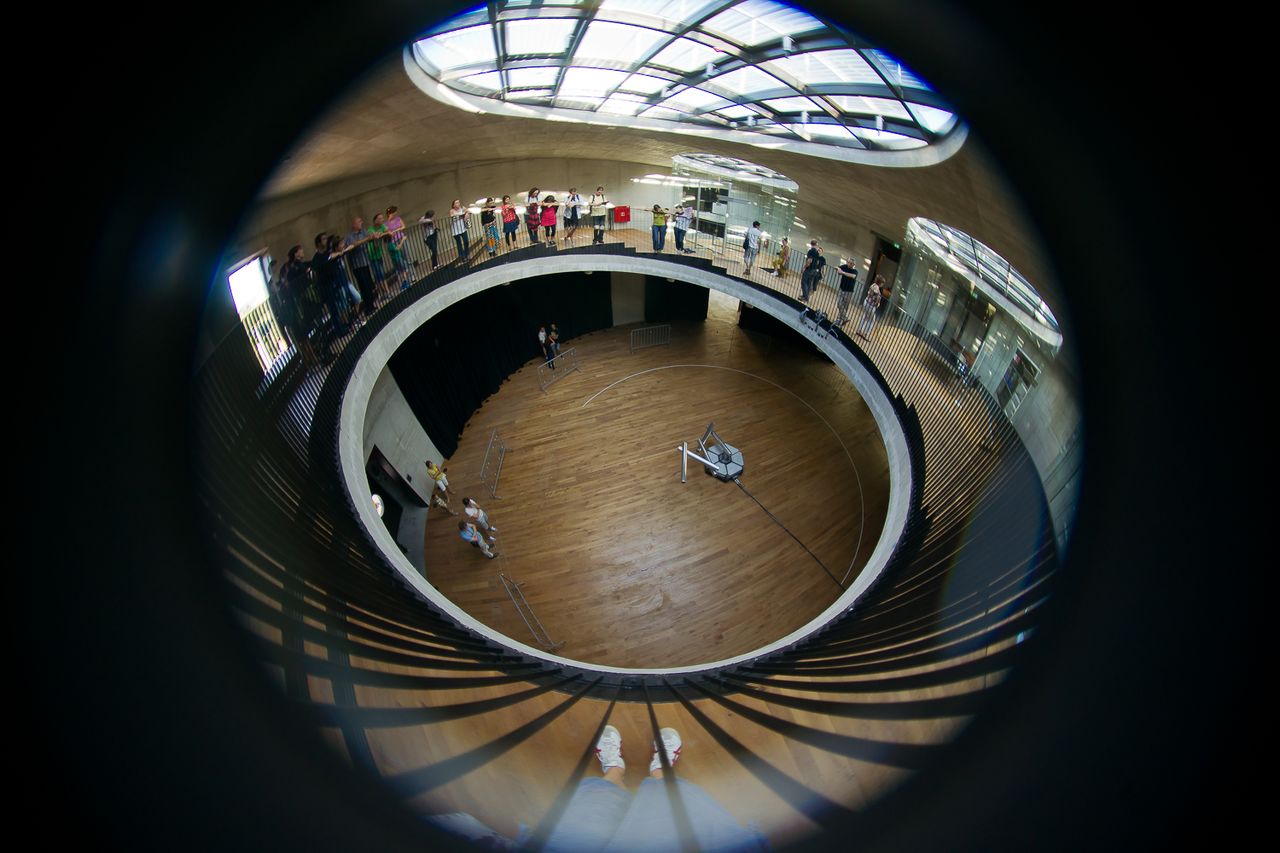 View from the upper floor of the building in Vitanje.
View from the upper floor of the building in Vitanje.
The Cultural Centre of European Space Technologies (KSEVT) opened in Vitanje in September 2012 to complement the Herman Potočnik Noordung Memorial Centre. The building design is the work of four architectural bureaus which established the Architectural Union for Vitanje (AZZV): Bevk Perović Arhitekti, Dekleva Gregorič Arhitekti, Ofis Arhitekti, and SADAR + VUGA Architects. KSEVT's programme is based on the concept of the culturisation of outer space, introduced by Dragan Živadinov, Dunja Zupančič, and Miha Turšič within the Delak Institute.
Described as "a living room of Vitanje inhabitants and a space for the synthesis of art and science focused on the post-gravity art" by its inceptors, KSEVT promises an interaction between the local, the regional, and the planetary. In 2014 the KSEVT team will represent Slovenia at the Architecture Biennale in Venice with The Problem of Space Travel - Supre:architecture project.
Building
The Integrated Revitalisation of the Vitanje House of Culture into KSEVT project received funds in 2009 through the Development Investing in Public Cultural Infrastructure programme, run by the Ministry of Culture. The fascinating building of 2500 m² replaced the old cultural centre and is inspired by Herman Potočnik's plan for the first geostationary space station from 1928. It is situated in the hilly landscape between the neoclassicist Church of the Mother of God, the Gothic Church of St Peter, and the former Bishop's Mansion.
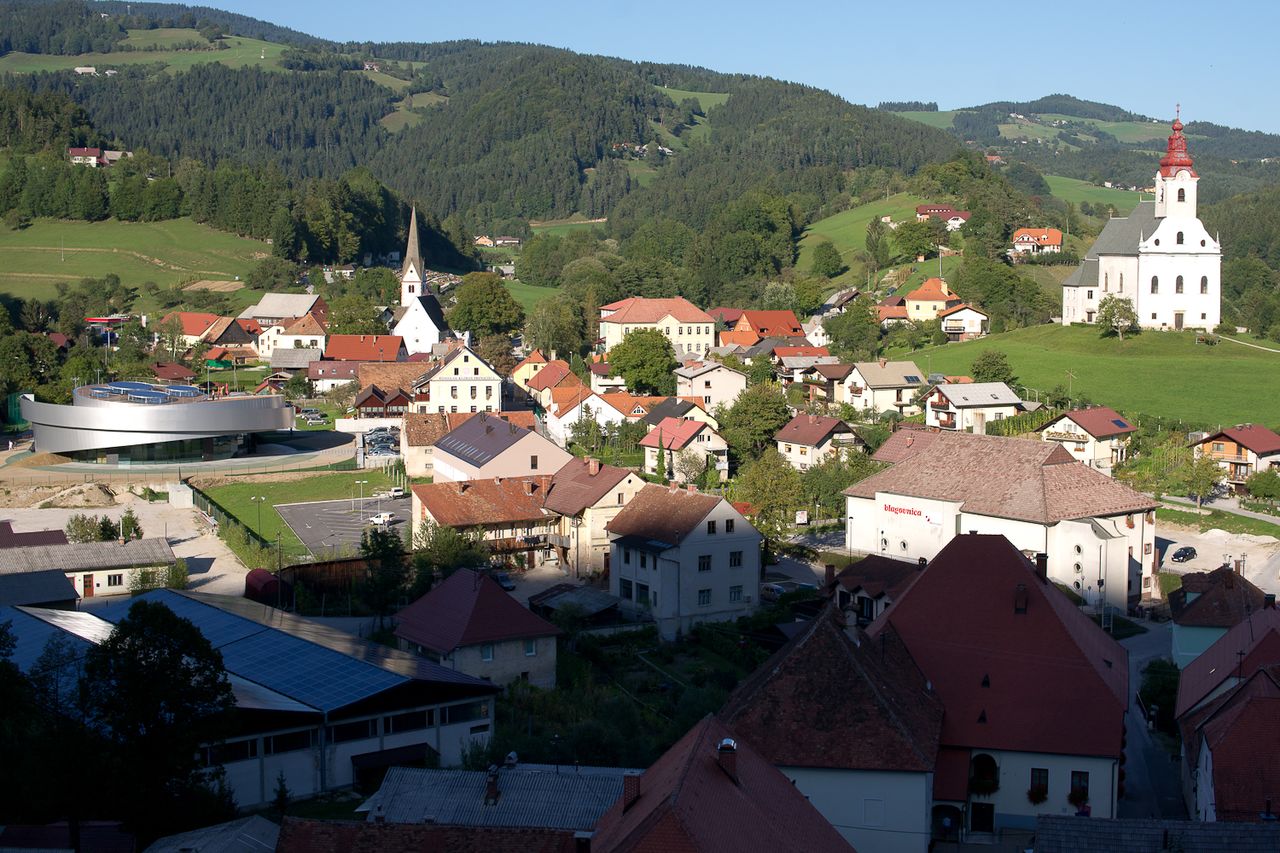 Cultural Centre of European Space Technologies (KSEVT), a space for the synthesis of art and science focused on the post-gravity art, Vitanje, 2012. Since 2017 the programme is run by Herman Potočnik Noordung Space Center.
Cultural Centre of European Space Technologies (KSEVT), a space for the synthesis of art and science focused on the post-gravity art, Vitanje, 2012. Since 2017 the programme is run by Herman Potočnik Noordung Space Center.
The ground level includes the Vitanje Library and a multi-purpose circular hall with 300 seats. The first floor with research facilities is dedicated to the KSEVT programme.
Programme
The permanent exhibition Herman Potočnik Noordung: 100 Monumental Influences is based on 100 of Herman Potočnik Noordung's drawings, used in his book The Problem of Space Travel - The Rocket Motor. The display covers Potočnik's life and time, the early rocket technologies, space architecture, usage of the Earth orbits, space wear, the Treasures of Modernity collection, and, last but not least – Slovenia in space.
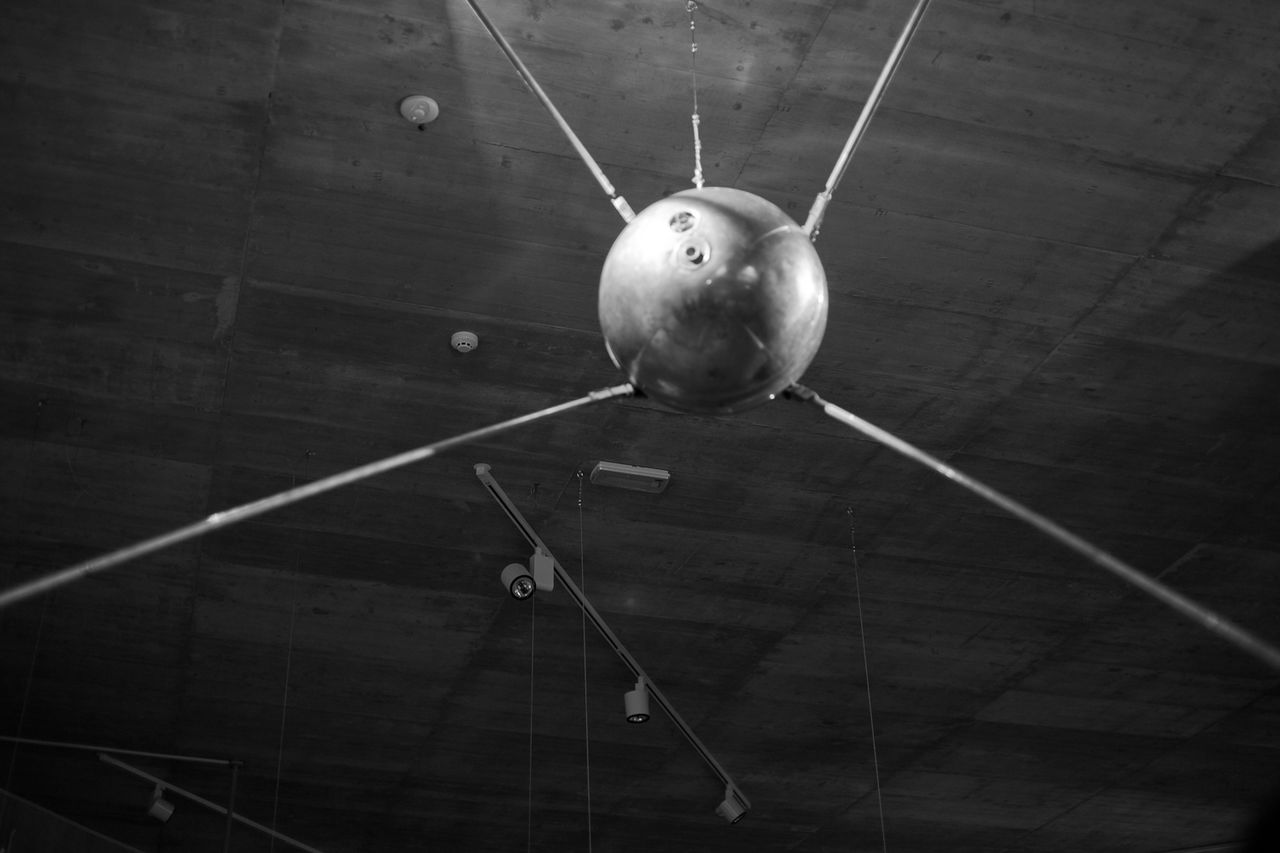 A replica of Sputnik 1, the first artificial satellite in the world to be put into outer space, part of the permanent exhibition at the Cultural Centre of European Space Technologies (KSEVT), 2012
A replica of Sputnik 1, the first artificial satellite in the world to be put into outer space, part of the permanent exhibition at the Cultural Centre of European Space Technologies (KSEVT), 2012
The international residency programme will focus on the interdisciplinary research of the cultural context of the human interaction with space and will host artists, scientists, and philosophers.
International cooperation
On a regional level KSEVT generates connections between Trieste, Italy (liaising it with the Trieste Constructivist Ambient from 1927); Pula, Croatia (Potočnik's birth town); and Graz, Austria. KSEVT already cooperates with the Russian State Museum in St Petersburg and the National Air and Space Museum in Washington D.C..
In 2011 the Centre prepared the Memorandum on the Culturalisation of Outer Space that the Slovene President Danilo Türk presented to the Russian President Dmitry Medvedev as a new dimension of cooperation between Slovenia and Russia. The document foresees the first (professional) artist spaceflight, presumably in the person of the Slovene primaballerina Mateja Rebolj who has also collaborated with Dragan Živadinov in the Noordung Cosmokinetic Cabinet.
See also
- Herman Potočnik Noordung Memorial Centre Vitanje
- Delak Institute
- Slovenske Konjice Public Library
- Noordung Cosmokinetic Cabinet
External links
References
- Herman Potočnik Noordung on Wikipedia
- Dušan Petrač who worked at NASA's Jet Propulsion Laboratory, presents KSEVT
- The KSEVT architecture in progress on Archdaily




